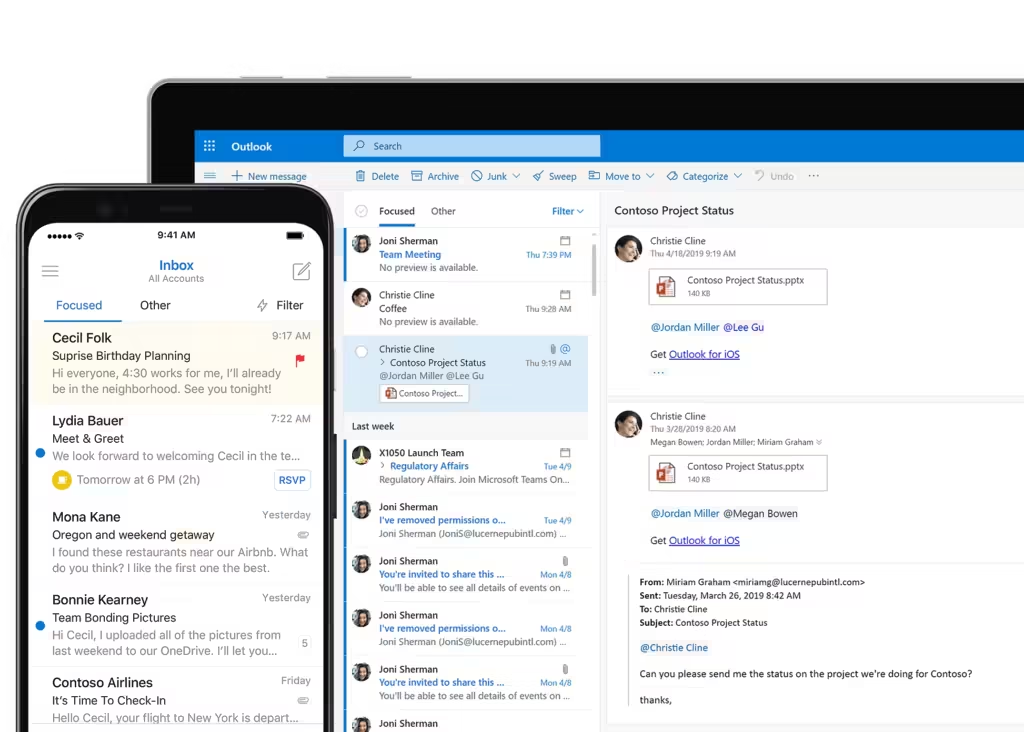
Microsoft Exchange: A Cornerstone for Business Communication
Microsoft Exchange is a leading email and collaboration platform designed primarily for businesses. Part of the Microsoft 365 suite, Exchange provides robust email hosting, calendar management, and contact organization, making it an essential tool for organizations of all sizes.
Key Features
-
Email Hosting: Exchange offers powerful email solutions, providing users with large mailboxes and advanced spam filtering. Its integration with Outlook allows for a seamless experience in managing emails, organizing folders, and accessing important communications.
-
Calendar Management: With Exchange, users can easily schedule meetings, share calendars, and set reminders. The shared calendar feature enhances team collaboration, allowing for efficient scheduling across departments.
-
Contact Management: Exchange includes tools for managing contacts effectively, enabling users to create shared contact lists and access them easily. This feature is particularly useful for maintaining relationships with clients and partners.
-
Mobile Access: Microsoft Exchange provides mobile synchronization, allowing users to access their email, calendar, and contacts from smartphones and tablets. This ensures that teams can stay connected, whether in the office or on the go.
Security and Compliance
Security is a primary focus for Microsoft Exchange. The platform includes features like advanced threat protection, data loss prevention, and encryption to safeguard sensitive information. Additionally, Exchange is designed to comply with various regulations, making it suitable for industries that require strict adherence to data protection laws.
Integration with Microsoft 365
As part of the Microsoft 365 ecosystem, Exchange integrates seamlessly with other applications like SharePoint, Teams, and OneDrive. This integration enhances collaboration and productivity, enabling users to share documents, hold virtual meetings, and work together in real time.
Pricing and Deployment Options
Microsoft Exchange offers various pricing plans that cater to different organizational needs, from small businesses to large enterprises. Organizations can choose between cloud-based solutions through Microsoft 365 or on-premises deployments, providing flexibility based on their infrastructure and preferences.
Conclusion
Microsoft Exchange remains a cornerstone for business communication, providing a comprehensive suite of tools for email, calendar, and contact management. Its robust features, security measures, and seamless integration with Microsoft 365 make it an ideal choice for organizations looking to enhance their communication strategies. Whether for remote teams or in-office collaboration, Exchange continues to be a vital asset in the modern workplace.
